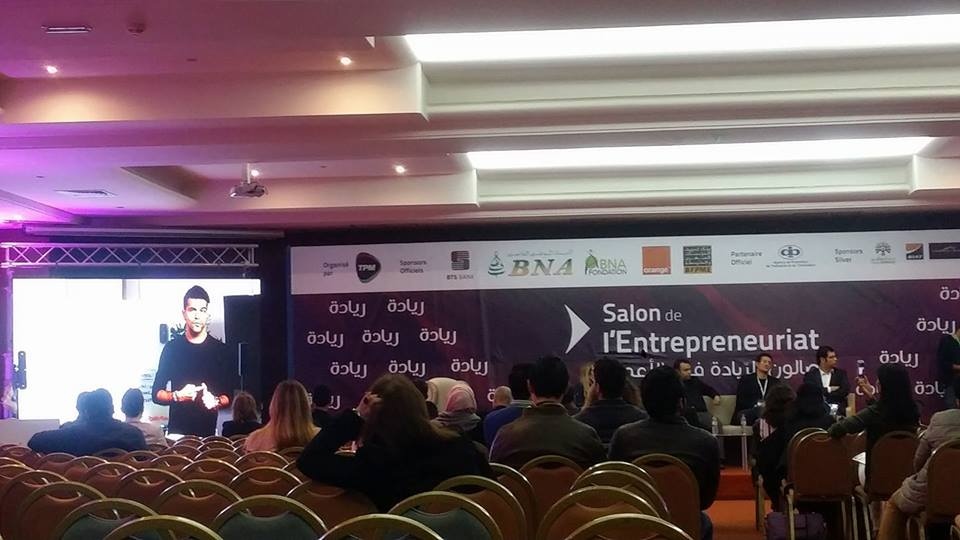Tunisian startups' struggle to scale

Tunisian entrepreneurs often ‘ask the experts’ how to internationalize their startup, and it’s a question that gained some more airtime last week.
The Tunisia Entrepreneurship Show on February 22-23 put together a panel to look into the problems young Tunisians face when deciding to internationalize their startup.
"It's always the same process, you need to ask for an authorization from the central bank, as soon as you want to open an account abroad or have money abroad," said Issam Mokni, a lawyer in business affairs.
This caused ripples of laughter: Tunisians know they need authorization from the central bank to do anything in business and it’s never that simple - the institution's bureaucracy is legendary.
"It's not that complicated, just follow the procedures. You must have at least 150,000 dinars of turnover and be one year old, so for a startup that is only six months [old], it is not possible to 'internationalize right away’,” said Mokni.

Take a better care of your image
The issue of money and hurdles around online banking are high on the list of barriers to global scaling, but a lack of attention to detail is another
"We see many Tunisians responding to the recruitment offers for computer development in startups and at the same time, there is always something missing: either a rigorous presentation or a spelling mistake in an email," said Nouha Mokni, founder of My Kenz, a startup based between Tunis and Paris.
“In spite of true Tunisian skills, there is this lack of perfectionism [among startups] which is a default on the international market as well as [the fees they charge for their services] which are sometimes not interesting compared to other competing countries.”
She deplored the fact that some Tunisian entrepreneurs were not easily found in a Google search for example, and said a “very easily reachable market” for Tunisians was the diaspora abroad who were wanted Tunisian talent.
Bridges are being created between the Tunisian entrepreneur community and the rest of the world, as evidenced by the presence at the conference of Nizar Ayadi who is the local director at Startup Grind, an American fund for startups, and France’s launch of a visa for entrepreneurs.
But for Tunisian entrepreneurs, some obstacles remain: the lack of tools and tips to help entrepreneurs navigate how to expand out of the country, having the desire even to internationalize, and the lack of access to online fintech platforms such as Paypal.

Why scale anyway?
It became clear during the panel that many Tunisian entrepreneurs lack the tools and ambition to internationalize their startup.
"I will give you several reasons that show that internationalizing should never be an option but something essential for a startup. First of all, Tunisia is a good place to test a product, but it's a very small country so as soon as you can see if your product is interesting for other markets, you have to go," said Khaled Helioui, CEO of Bigpoint in Germany.
"Then you have what is called an ICE study to do, Impact-Confidence-Ease to prioritize the countries you want to start in. Then you have to study the regulations of each and see if you can navigate with them."
Helioui, who also has a stake in Uber, explained the difference between a large startup such as Uber and a small startup still in the early stage process. "[Business to customer] is important, for example, Uber can open an office in three days in any country with a playbook, it will take more time for a small startup but this speed is also a goal to aim when you want to expand and scale.”
Paypal still on standby
The lack of financial options within Tunisia for those wanting to scale outside the country is a real problem for startups, says Taher Mestiri, CEO of Hadrum and general manager of I.T.Grapes.
"Today, apart from the technological card for entrepreneurs, there are many obstacles because we can not open an international account. I've been working with the ministries for several years to get the opening up to Paypal, which is more complicated than you think, because Paypal needs a whole structure to work when it moves into a country," he said during the panel.
Taher said successive ministerial changes and cabinet reshuffles had greatly slowed negotiations. "We have held meetings of five hours with all the actors concerned by the issue and we have even received a letter of comfort from the central bank, which shows that they more or less agree on the principle of Paypal settling up in Tunisia.”
Now the new Ministry of ICT has taken over the issue and people in the entrepreneur ecosystem are having difficulty finding out how the discussions are progressing.
"Everything is ready but we do not know when Paypal will really be present in Tunisia, and this is one of the conditions to internationalize a startup today," Tahar said.
While some are beginning to succeed in the challenge of internationalization, such as the Internet of Things startup Chifco which won the French Tech Ticket, enabling it to be hosted in a Parisian incubator, most Tunisian entrepreneurs are still waiting for a policy change on the part of the government for better monetary openness.
Feature image via Flickr.


